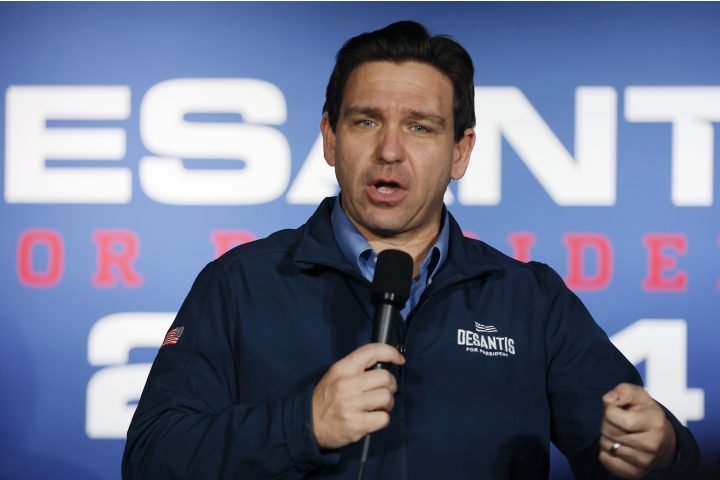
Are we truly a nation of, by, and for the people, as Lincoln put it, if our elected representatives aren’t the ones actually making the decisions affecting our lives? For a long time they haven’t been making many of those decisions, too, having essentially “outsourced” them to judges and bureaucrats. But two cases currently before the Supreme Court could help remedy this problem and force Congress to do its job — and could restore power to the people.
The two cases are Loper Bright Enterprises v. Raimondo and Relentless, Inc. v. U.S. Department of Commerce. And what instigated them well illustrates the perils of letting unelected officials, whose unelected status places them beyond the people’s corrective reach, issue life-altering regulations.
“For the past 30 years, the Magnuson-Stevens Act (MSA) has given the National Oceanic and Atmospheric Administration (NOAA) the authority to require monitors on commercial fishing boats,” writes LoperBrightCase.com. “These monitors are intended to ensure that the fishermen adhere to ethical fishing practices, as mandated by NOAA.”
But here’s the kicker: Outrageously, the MSA mandates that certain types of fishing vessels must pay for these federally required monitors themselves. Nonetheless, the act didn’t list herring boats as among those types, and for many years the NOAA agreed that it didn’t apply to these boats and funded the monitors itself.
That is, until the agency ran out of money.
Then, instead of getting more congressional funding, the NOAA simply changed its interpretation of the MSA and voila! Now these herring fisherman, who have a crew of only five or six on their vessels, have to pay the monitors’ salary — which reportedly runs more than $700 a day per boat.
This “can be as much as 20% of a ship’s daily take home pay and is frequently more than the ships’ captains make,” LoperBrightCase.com informs. (Why a fed whose only role is to sit around and watch people makes $700 a day is another matter. Sounds like a scam. But that’s government for you.)
Earth-shaking Implications
Yet there’s more than just this NOAA decision at stake. In point of fact, the current two SCOTUS cases’ plaintiffs “are urging the justices to overrule a landmark holding involving the energy giant Chevron,” informs The Harvard Gazette. “In that decision, from 1984, the court said government agencies are best positioned to interpret federal statutes if a question is not specifically addressed, provided the interpretation is reasonable.”
“Since then, ‘Chevron deference’ has been a foundational framework in administrative law,” the Gazette continues — even though federal bureaucracies (whose mere existence is usually unconstitutional) have no power under the Constitution to make the decisions in question.
The irony here is that while Chevron was designed to limit judicial activism — i.e., insofar as Congress and the bureaucracy don’t make the necessary decisions, the courts will — it has led to bureaucratic activism.
Many SCOTUS justices are skeptical about Chevron, too. At a Wednesday hearing, Justice Neil Gorsuch expressed this point of view, saying, “The cases I saw routinely on the courts of appeals — and I think this is what niggles at so many of the lower court judges — are the immigrant, the veteran seeking his benefits, the Social Security disability applicant, who have no power to influence agencies, who will never capture them, and whose interests are not the sorts of things on which people vote.”
As for the opposing position, “Overruling Chevron would cause an ‘unwarranted shock to the legal system,’ U.S. Solicitor General Elizabeth Prelogar said,” USA Today’s Dace Potas reports. Prelogar’s rationale is that the current standard provides “stability,” Potas also writes, and that without it the courts would be overwhelmed with “litigants from past cases that were decided using Chevron deference, that now would have the opportunity to relitigate their case.”
Yet is this a good argument? As Potas points out, “Just because resolving incorrect law is inconvenient does not mean we should allow bad precedent to stand. This is the very logic the court has followed in overturning other precedents, such as Plessy v. Ferguson or Roe v. Wade.”
In fact, Chevron has enabled congressional complacency. “The punishment for legislation remaining ambiguous when it becomes law ought to be that those responsible be tasked with fixing it,” Potas states. This would be Congress.
“But Congress is both lazy and divided,” Potas adds, “making the passage of any legislation difficult, much less renegotiating bills that have already passed.”
But what is really being said here? Translated, is it not this: Chevron makes growing and maintaining big government impractical? Bureaucracies can quickly and easily hand down thousands of regulations that could never be passed so rapidly by Congress, if at all. Conclusion:
Overturning Chevron would help hamstring the D.C. leviathan.
This is perhaps what really bothers its defenders. The Harvard Gazette, for example, says that a post-Chevron government “cannot work in practice.” But do we want things neat and quick?
Then appoint a dictator who’ll make decisions with a pen stroke.
Representative government is supposed to be messy, and congressional gridlock is generally a good phenomenon. After all, limiting congressional production is healthy since what Congress produces are laws, regulations, and mandates — which reduce freedom — and big programs that consume wealth.
Yet there’s another factor. Many legislators may love outsourcing their job to agencies, and courts, because then on controversial issues they don’t have to take tough stands that could cost them the next election. The bureaucrats and judges can make those tough decisions — without fear of job loss.
All this said, whether Chevron will be overturned is questionable, as word is that justices John Roberts and Amy Coney Barrett are, not surprisingly, mushy on the matter. Maybe the most likely outcome is that it will be limited but not nixed. Given this, in closing perhaps two points should be made:
Convenience must never trump constitutionalism, and a “precedent” must always yield to what precedes it: the ultimate precedent — the Constitution.
Addendum: For those interested, the following moving video illustrates the herring fishermen’s plight.

































 Reaction & Commentary
Reaction & Commentary















